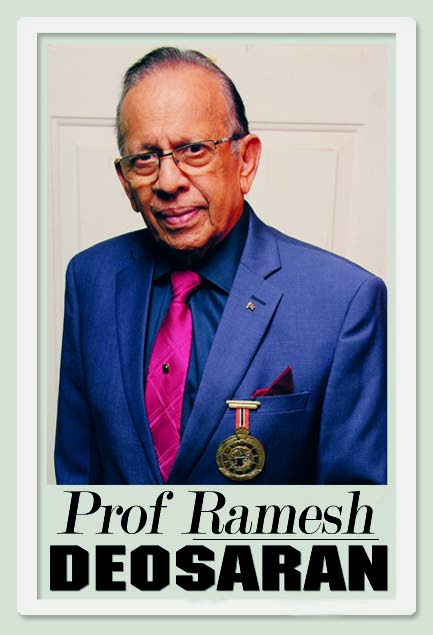Pressure from crime and tax

AS the police dutifully reported, Health Minister Terrence Deyalsingh “was shaken up” after being robbed at gunpoint on September 17 around 5 pm in his St Joseph constituency. As my MP, I extend my sympathy to him. Public reaction went different ways.
Nearby resident Shane Modeste stated: "This has to be a wake-up call to government. They can no longer fool themselves into thinking it is just the poor man.”
If you really want to hear about “being shaken up” by crime, hear Penal’s sick 59-year-old businesswoman Taramatie Jagessar’s frightening experience.
After her home was invaded early on Monday morning, and her hands, feet and mouth bound by four cutlass-armed Spanish-speaking bandits, she painfully explained: “I was just praying, 'Please save me, Lord. Let them take whatever they want and leave me alone.' I start to beg. I told them I was sick and if I didn’t have the oxygen I would have died.”
“Home invaders” regularly attack, rob and brutalise sleeping pensioners too, leaving them “shaken” by lifelong trauma. It looks like an organised system with low detection and conviction rates.
Tobago will continue to sink with crime, especially gang-driven murders, damaging its fragile tourist industry, unless border and measurable ground-level strategies are quickly put in place. Facing a murder rate of 23, and sensing clear and present dangers, Tobago House of Assembly Chief Secretary Farley Augustine, caught in a political bind, admitted: “We are tired. We have a million-and-one meetings and plans, since plans are not executed. I warned a month ago that the Tobago population will slowly lose confidence in the national security apparatus’ ability to govern and lead.”
The Caribbean faces serious attack from gun-toting gangs. Last month Jamaica unleashed a state of emergency after eight were killed and nine injured from mass gunfire. The murder rate in St Kitts-Nevis has escalated to an unprecedented ten so far. Dr Ralph Gonsalves’s St Vincent and the Grenadines is still recovering from a mass murder of five and escalating serious crimes. Many of the killings and serious crimes are committed by youths under 21.
Last Thursday, Barbados’s PM Mia Mottley hurriedly called a press conference to announce a National Advisory Council (NAC) of professionals and civic organisations to work towards a “national consensus” and anti-crime proposals. This was part of a desperate response to the massacre by three masked men, killing three and injuring eight, in the capital city two Saturdays ago.
About 20 years ago, I proposed such a NAC to all Caricom states facing murders, serious crimes and low public confidence.
Last week, Justice Frank Seepersad pleaded: “We must hold all persons in authority accountable for inefficiency, ineffectiveness, incompetence and illegality.”
This is where a large part of the crime problems exists.
Even when there is some accountability as we witness during parliamentary select committee hearings, there are no consequences.
Accountability without consequences is just shadow- boxing again, until it is merry-go-round time again.
With crime pressures, up comes additional pressure to pay property tax – a glaring case of inefficiency, unnecessary burden and inequity on law-abiding citizens. People used to pay their land and building taxes quietly and comfortably. The politicians decided something else. How can you have citizens – poor pensioners, sickly people – lining up for hours to pay their taxes, sometimes with one cashier at the counter?
Finance Minister Colm Imbert and minister in the ministry Brian Manning promised to have online payment and through your bank. Ok, but also extend the deadline. Speed up things.
Many citizens have appealed.
The Valuation Division should have a two-week limit to respond for people to pay.
You know, Mr Imbert started out quite good in 2015 but it seems he now needs to take two steps back and show he really cares about people.
Newspaper letter-writer Linus Didier noted his neighbour went to pay property tax at 8.30 am but left at 2 pm. He further noted that the PNM government switched around the priorities and put the tax first on residents rather than on commercial buildings, etc.
“This puts the pressure on the poor and middle class by charging them first,” he said.
Another, Dexter Rigsby, calls it “property tax torture.”
All this is making citizens ask: Does government really care about people?
The whole country is being “shaken up.”
Dr Rowley, Ministers Hinds and Scotland, Police Commissioner Erla Christopher and Mr Imbert should reply.
It is their constitutional duty.

Comments
"Pressure from crime and tax"